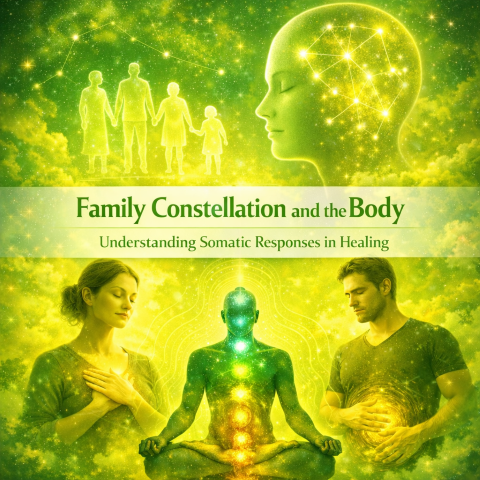Rebuilding Trust After Betrayal: A Path to Family Healing
Rebuilding Trust After Betrayal can be one of the most challenging journeys a family faces. Betrayal cuts deep, leaving emotional scars that may feel impossible to heal. Yet with consistent effort, honest dialogue, and professional guidance, it is possible to create renewed understanding and unity within your family.
When trust is compromised, feelings of hurt, anger, and loss of security often dominate daily interactions. Communication becomes strained, and emotional distance may increase. However, by acknowledging that trust, while fragile, can be rebuilt into something new, families can begin a transformative process that leads not only to healing but also to stronger, more resilient relationships.
Understanding the Impact of Betrayal
Betrayal affects family members in various ways:
- Emotional Trauma
The shock and pain from broken trust can linger, intensifying negative emotions like resentment and fear. - Broken Relationships
Betrayal often leads to fractured bonds, as family members may withdraw to protect themselves from further hurt. - Loss of Security
A once-stable family environment may feel unsafe, fueling ongoing anxiety. - Damaged Communication
Honest conversations become more difficult, potentially leading to misunderstandings. - Fractured Family Dynamics
A betrayal can alter the family hierarchy, creating power imbalances or favoritism.
Though trust may not return to its original form, it can evolve into something more mindful and intentional, ultimately fostering deeper appreciation for honesty and respect.
The Healing Journey Through Family Counseling
Initial Steps to Healing
- Acknowledging the Betrayal
Recognize what happened and admit the impact it has on everyone involved. - Creating a Safe Space
A judgment-free environment encourages open, honest expressions of hurt and confusion. - Validating Emotions
Each person’s feelings matter. Accepting and honoring these emotions is an essential step. - Understanding Different Perspectives
Family members may experience betrayal in distinct ways. Listening to one another promotes empathy. - Establishing Ground Rules
Define respectful language, personal boundaries, and a shared commitment to healing.
Emotional Processing
Family counseling provides structured support for:
- Expressing Anger and Hurt
Letting these emotions surface helps prevent built-up resentment. - Working Through Confusion and Grief
Betrayal often triggers a sense of loss that must be processed. - Addressing Fear
Fear of repeated betrayal can stall progress if not acknowledged. - Overcoming Resentment
Unresolved anger can undermine attempts to rebuild trust.
Building Effective Communication
Communication issues frequently underlie betrayals, so refining how family members express themselves can significantly accelerate healing.
| Instead of Saying | Try Saying |
|---|---|
| “You never listen!” | “I feel unheard when…” |
| “You always ignore me!” | “I feel overlooked when…” |
| “You don’t care!” | “I feel unimportant when…” |
| “You betrayed me!” | “I feel hurt because…” |
| “You’re unreliable!” | “I feel uncertain when…” |
Communication Tools
- Active Listening
Focus on truly hearing the speaker rather than thinking about your response. - Empathy-Building Exercises
Practice placing yourself in a loved one’s shoes to understand their emotional state. - Perspective-Sharing Sessions
Create intentional time for each member to voice their viewpoint. - Constructive Feedback Methods
Offer solutions along with concerns to keep conversations forward-focused.
Setting Healthy Boundaries
Clear, respected boundaries help prevent future betrayals and rebuild trust on solid ground.
- Establish Expectations
Define what respectful behavior and open communication look like. - Define Consequences
Decide collaboratively on the outcome when boundaries are broken. - Consistent Enforcement
Follow through, so boundaries hold real meaning. - Mutual Respect
Commit to honoring each person’s emotional space. - Regular Review
Check in periodically to adjust boundaries as needs evolve.
Accountability is another vital component. Being transparent, following through on promises, and remaining honest—no matter how difficult—are key behaviors that gradually rebuild trust.
Practical Steps for Rebuilding Trust
Daily Practices
- Keep Promises
Even small commitments matter—when you say you’ll do something, do it. - Be Consistent
Demonstrate reliability through regular communication and emotional support. - Show Up
When someone needs you, aim to be present both physically and emotionally. - Practice Transparency
Be open about your feelings, intentions, and concerns.
Healing Activities
- Family Meetings
Weekly or monthly sessions encourage group dialogue and collective problem-solving. - Trust-Building Exercises
Activities like shared chores, cooperative games, or communication drills can reinforce unity. - Group Therapy Sessions
A professional setting can guide families through challenging discussions. - Individual Counseling
Each family member may benefit from one-on-one sessions to address personal issues related to the betrayal.
Understanding the Recovery Process
Healing from betrayal often unfolds in stages: Acknowledgment, Expression, Understanding, Forgiveness, Rebuilding, and finally, Growth. Families might experience setbacks along the way, but steady dedication usually leads to noticeable progress, such as:
- Improved Communication
Less defensiveness, more productive dialogue. - Increased Vulnerability
Openness in sharing feelings and concerns. - Greater Empathy
Actively considering each other’s perspectives. - Consistent Reliability
Fewer broken promises and disappointments. - Renewed Connection
Gradual return of trust and emotional intimacy.
Moving Forward
Key Principles
- Patience with the Process
Healing does not happen overnight. - Commitment to Change
Both words and actions must support the goal of rebuilding trust. - Consistency in Actions
Reliability over time fosters security and reassurance. - Open Communication
Don’t let misunderstandings or resentments fester. - Regular Reflection
Periodically assess how each family member feels about the progress made.
Long-Term Success
- Maintain Boundaries
Continually uphold the lines of respect and privacy established. - Continue Open Dialogue
Keep conversations honest, transparent, and empathetic. - Frequent Check-Ins
Encourage an ongoing feedback loop to address issues before they escalate. - Ongoing Counseling
Professional support can ensure accountability and maintain momentum. - Celebrate Progress
Recognize and honor any improvements or breakthroughs, no matter how small.
Conclusion
Rebuilding Trust After Betrayal is a demanding yet profoundly rewarding endeavor. Through genuine openness, respectful communication, and unwavering dedication, families can not only heal from the hurt but also create stronger, more resilient bonds. Trust may take a new shape, but with continued effort and professional guidance, it can still become a foundation of stability, love, and security for everyone involved.








Add your first comment to this post
You must be logged in to post a comment.